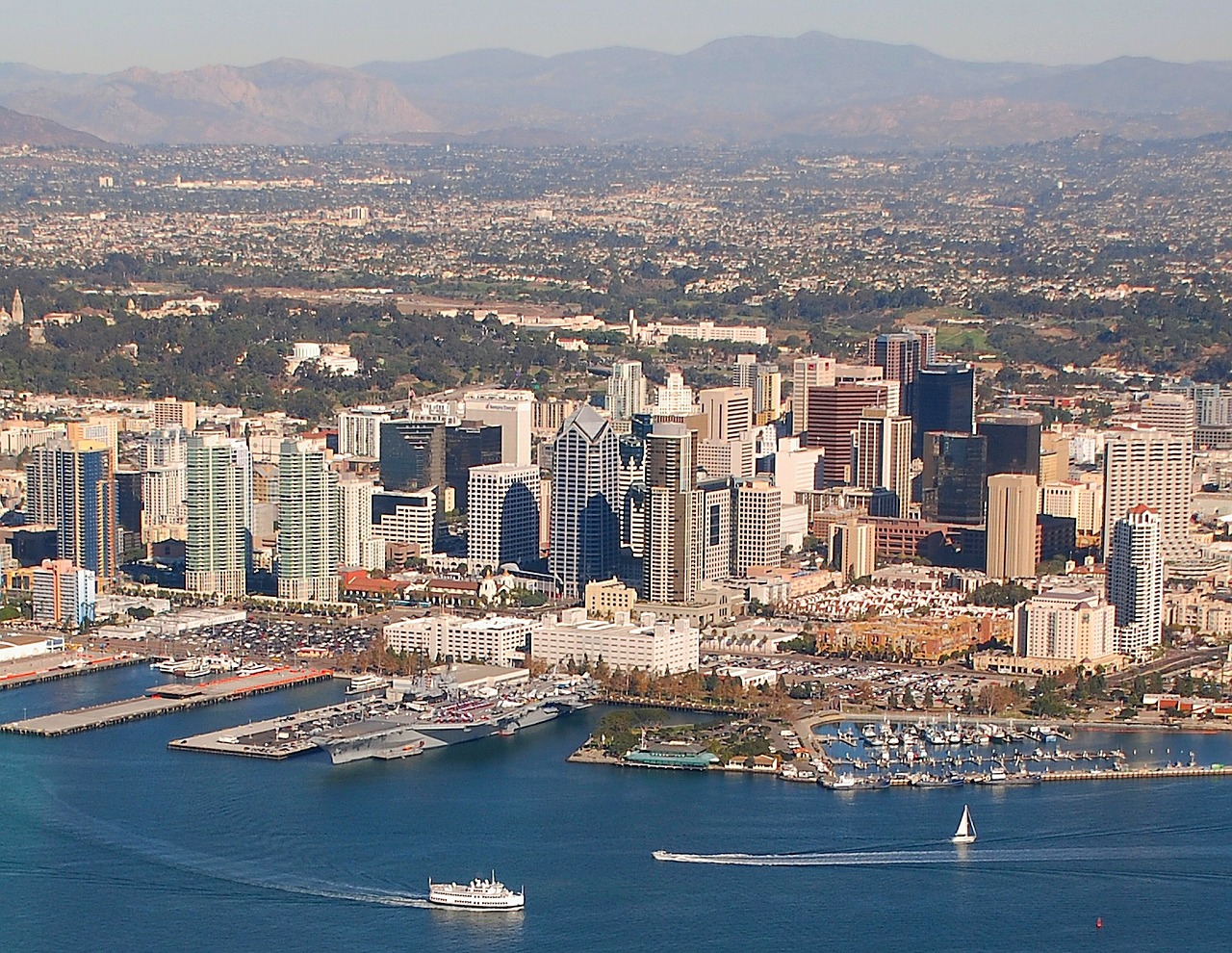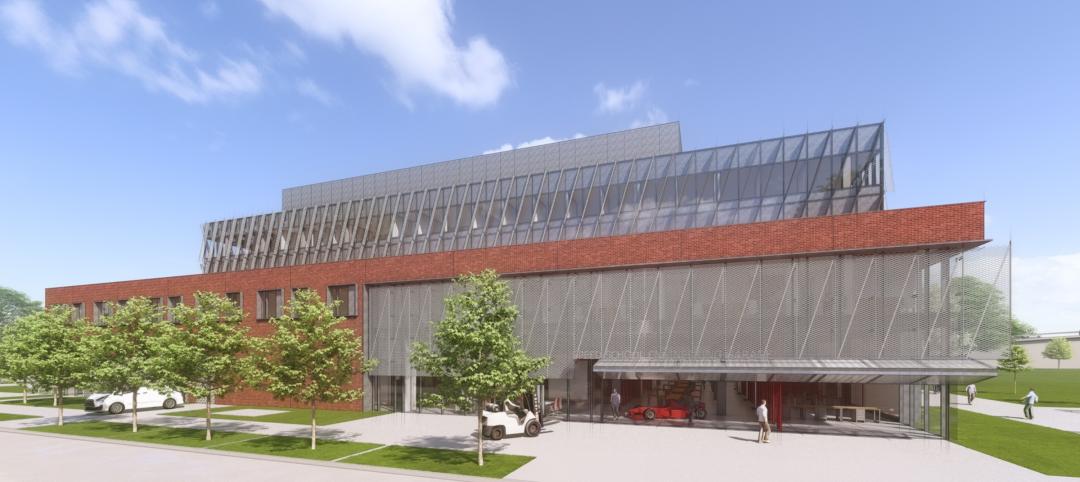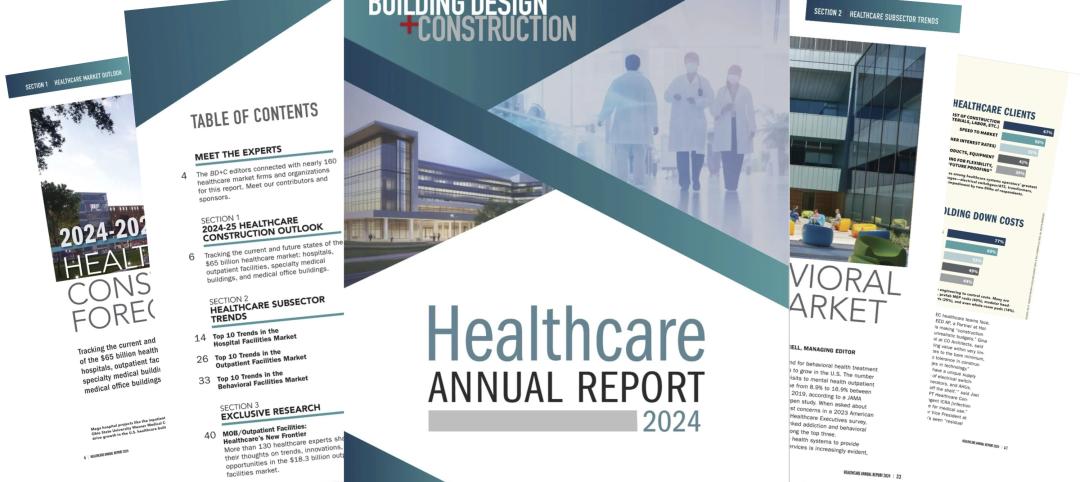Bosa Development is all in on San Diego. The Vancouver, British Columbia-based developer has been leading the latest construction boom in this southern California market, where Civic San Diego, the downtown planning agency, reports there are more than 63 projects valued at over $6.4 billion being constructed, approved, or under review.
Bosa Development, which completed seven buildings in San Diego over the past 15 years, has another eight buildings planned for construction or redevelopment in the next decade. Last month, Bosa acquired two building sites in downtown San Diego for $42.6 million, on which it plans to build up to 800 condos.
“San Diego is getting ready to pop,” Nat Bosa, the developer’s founder, told the San Diego Union Tribune recently. Indeed, in 2015 alone, developers completed 1,248 apartments, and another 8,106 are in the works, according to Civic San Diego.
Bosa Development was one of the real estate developers behind Rethink Downtown, a free public exhibit that opened last September to highlight the city’s history and culture.
San Diego’s urban core has actually been growing for quite some time. The number of people living downtown almost doubled between the years 2000 and 2013, according to the San Diego Association of Governments.
The city’s construction boom isn’t confined to multifamily, either. The giant retail developer Westfield recently announced plans for its 30-year-old Horton Plaza shopping mall. An adjacent park, which Westfield will manage, is scheduled to open in March, and the developer is considering changes to the mall that range from cosmetic fix-ups to major demolition and replacements.
Last fall, UC San Diego broke ground on a $150 million, 154,000-sf outpatient pavilion that will be build on the university’s health sciences campus in La Jolla, Calif. CO Architects designed the pavilion, which will help serve the Jacobs Medical Center, a $859 million collection of specialty hospitals that opens this year.
All of this construction and redevelopment activity is being conducted against the backdrop of a commitment that San Diego’s Mayor Kevin Faulconer made late last year to cut the city’s carbon emissions in half by 2035. To achieve this goal, the city needs to get more people and businesses to move into established neighborhoods, which will mean greater support for urban housing, an expansion of public transit, and access to renewable energy sources.
Without this commitment, the city might have been facing litigation because its environmental plan lacked sufficient enforcement measures. Faulconer’s plan calls for the city to cut total greenhouse gas emissions 15 percent by 2020 and 49 percent by 2035, based on its emission level from 2010. The plan includes a goal to reach 100% renewable energy by 2035, with an emphasis on local sources, according to Voice of San Diego’s website. And Faulconer envisions more than 60% of San Diego residents walking, riding their bikes, or taking public transit to work by 2035, compared to fewer than 10% in 2010.
Among the construction projects nearing completion in San Diego are a dual-hotel building at Lane Field at the foot of Broadway; a $555.5 million state courthouse, with 22 stories and 71 courtrooms within 704,000 sf, which should be finished this fall; and a 41-story luxury waterfront condo tower called Pacific Gate, another Bosa development that was designed by Kohn Fox Pedersen. Bosa has retained Engel & Völkers Scottsdale to market Pacific Gate, whose condo prices start at $1.4 million.
Related Stories
Codes and Standards | Jul 22, 2024
New FEMA rules include climate change impacts
FEMA’s new rules governing rebuilding after disasters will take into account the impacts of climate change on future flood risk. For decades, the agency has followed a 100-year floodplain standard—an area that has a 1% chance of flooding in a given year.
Construction Costs | Jul 18, 2024
Data center construction costs for 2024
Gordian’s data features more than 100 building models, including computer data centers. These localized models allow architects, engineers, and other preconstruction professionals to quickly and accurately create conceptual estimates for future builds. This table shows a five-year view of costs per square foot for one-story computer data centers.
Sustainability | Jul 18, 2024
Grimshaw launches free online tool to help accelerate decarbonization of buildings
Minoro, an online platform to help accelerate the decarbonization of buildings, was recently launched by architecture firm Grimshaw, in collaboration with more than 20 supporting organizations including World Business Council for Sustainable Development (WBCSD), RIBA, Architecture 2030, the World Green Building Council (WorldGBC) and several national Green Building Councils from across the globe.
University Buildings | Jul 17, 2024
University of Louisville Student Success Building will be new heart of engineering program
A new Student Success Building will serve as the heart of the newly designed University of Louisville’s J.B. Speed School of Engineering. The 115,000-sf structure will greatly increase lab space and consolidate student services to one location.
Healthcare Facilities | Jul 16, 2024
Watch on-demand: Key Trends in the Healthcare Facilities Market for 2024-2025
Join the Building Design+Construction editorial team for this on-demand webinar on key trends, innovations, and opportunities in the $65 billion U.S. healthcare buildings market. A panel of healthcare design and construction experts present their latest projects, trends, innovations, opportunities, and data/research on key healthcare facilities sub-sectors. A 2024-2025 U.S. healthcare facilities market outlook is also presented.
K-12 Schools | Jul 15, 2024
A Cleveland suburb opens a $31.7 million new middle school and renovated high school
Accommodating 1,283 students in grades 6-12, the Warrensville, Ohio school complex features flexible learning environments and offers programs ranging from culinary arts and firefighting training to e-sports.
MFPRO+ News | Jul 15, 2024
More permits for ADUs than single-family homes issued in San Diego
Popularity of granny flats growing in California
Codes and Standards | Jul 15, 2024
New York City code update changes definition of a major building
Changes affecting how construction projects in New York City are permitted will have significant impacts for contractors. On Dec. 11, the definition of a major building in the city’s code will change from 10 stories to seven, or 75 feet. The change will affect thousands more projects.
Adaptive Reuse | Jul 12, 2024
Detroit’s Michigan Central Station, centerpiece of innovation hub, opens
The recently opened Michigan Central Station in Detroit is the centerpiece of a 30-acre technology and cultural hub that will include development of urban transportation solutions. The six-year adaptive reuse project of the 640,000 sf historic station, created by the same architect as New York’s Grand Central Station, is the latest sign of a reinvigorating Detroit.
Healthcare Facilities | Jul 11, 2024
New download: BD+C's 2024 Healthcare Annual Report
Welcome to Building Design+Construction’s 2024 Healthcare Annual Report. This free 66-page special report is our first-ever “state of the state” update on the $65 billion healthcare construction sector.

















